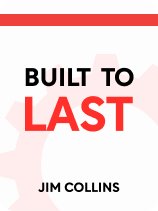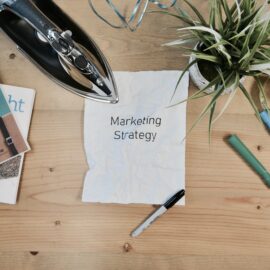

This article is an excerpt from the Shortform book guide to "Built to Last" by Jim Collins and Jerry Porras. Shortform has the world's best summaries and analyses of books you should be reading.
Like this article? Sign up for a free trial here .
What’s wrong with product-focus in business? If the product isn’t the point, what is?
One of the myths about visionary companies is that they require one great idea—a specific product or service—to get started. In reality, visionary companies don’t take the product-focus approach. Instead, they concentrate on building a great company.
Continue reading to learn why product-focus generally doesn’t lead to greatness.
The Product Isn’t the Point
Business schools espouse that you need a great idea backed by a solid marketing plan before starting a company. But visionary companies show that product-focus simply isn’t the path to lasting success.
Out of the 18 visionary companies, only three had a specific product or service in mind when they began: Johnson & Johnson, General Electric, and Ford. All the others tried one thing after another, getting both hits and misses and refining their offerings along the way. Many limped and stumbled before finding their footing and eventually becoming a great success.
- For example, Hewlett-Packard (HP) began in 1937 without a product. Bill Hewlett and David Packard used their engineering backgrounds to create various contraptions, from bowling lanes to telescopes to urinals, many of which didn’t produce great results. They didn’t let their failures dissuade them—kept creating and experimenting until they acquired profitable war contracts in the 1940s.
The Trouble With Product-Focus
A great idea shouldn’t be the be-all and end-all of a company, and product-focus is actually detrimental in three ways:
- If it fails, you might get discouraged and abandon the company altogether.
- If it succeeds, you might become too attached to it, ignoring other avenues for growth.
- Any product, no matter how innovative, will eventually become obsolete. If you pin organizational success to that one great idea, then you won’t have what it takes to find lasting success.
When building a visionary company, the product isn’t the point—the company is. You can only build an enduring company if you never give up, even if your products keep failing. Instead of focusing all your attention on designing a great product, shift your focus to designing a great organization.
- For example, General Electric (GE) used Edison’s direct current system, which proved inferior to their competitor Westinghouse’s alternating current system. But one product didn’t dictate GE’s fate. They established the General Electric Research Lab, which created many more products that helped propel GE to greatness.
If you want to build a company that lasts, product-focus isn’t likely to get you there.

———End of Preview———
Like what you just read? Read the rest of the world's best book summary and analysis of Jim Collins and Jerry Porras's "Built to Last" at Shortform .
Here's what you'll find in our full Built to Last summary :
- The key to longevity and success for your company
- Debunking the twelve myths about what it takes to build a visionary company
- The four key concepts behind enduring greatness






